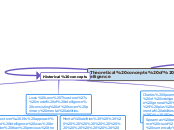Theoretical concepts of intelligence
Historical concepts
Francis Galton's theory of genetics influencing mental abilities
Formed a movement called Eugenics Society, arguing for specific selecting of humans to improve intelligence in society (O’Donnell, et al, 2016).
Louis Leon Thurstone's model of intelligence consisting of seven primary mental abilities.
Thurstone’s approach to intelligence was broader than previous theories, allowing for a deeper understanding of mental abilities. His approach to intelligence challenged (Kovacs & Conway, 2016).
Mental abilities 1. verbal comprehension
2. word fluency
3. number facility
4. spatial visualisation
5. associate memory
6. perceptual speed
7. reasoning (O’Donnell, et al, 2016).
Charles Spearman`s views of intelligence being one general factor (g) plus other specific mental abilities (s) (O’Donnell, et al, 2016).
Spearman believed intelligence could be expressed numerically and was a general cognitive process (Kovacs & Conway, 2016).
Current concepts
Robert Sternberg's triarchic theory of
intelligence
Intelligence is a combination of three different elements 1. Analytical intelligence - problem solving abilities.
2. Creative intelligence - capacity to deal with new situations
3. Practical intelligence - ability to adapt to a changing environment (Winthrop University, n.d.).
Howard Gardner’s theory of multiple intelligence
Eight kinds of intelligence 1. Visual-spatial intelligence
2. Verbal-linguistic intelligence
3. Bodily-kinesthetic intelligence
4. Logical-mathematical intelligence
5. Interpersonal intelligence
6. Musical intelligence
7. Intrapersonal intelligence
8. Naturalistic intelligence (O’Donnell, et al, 2016).
